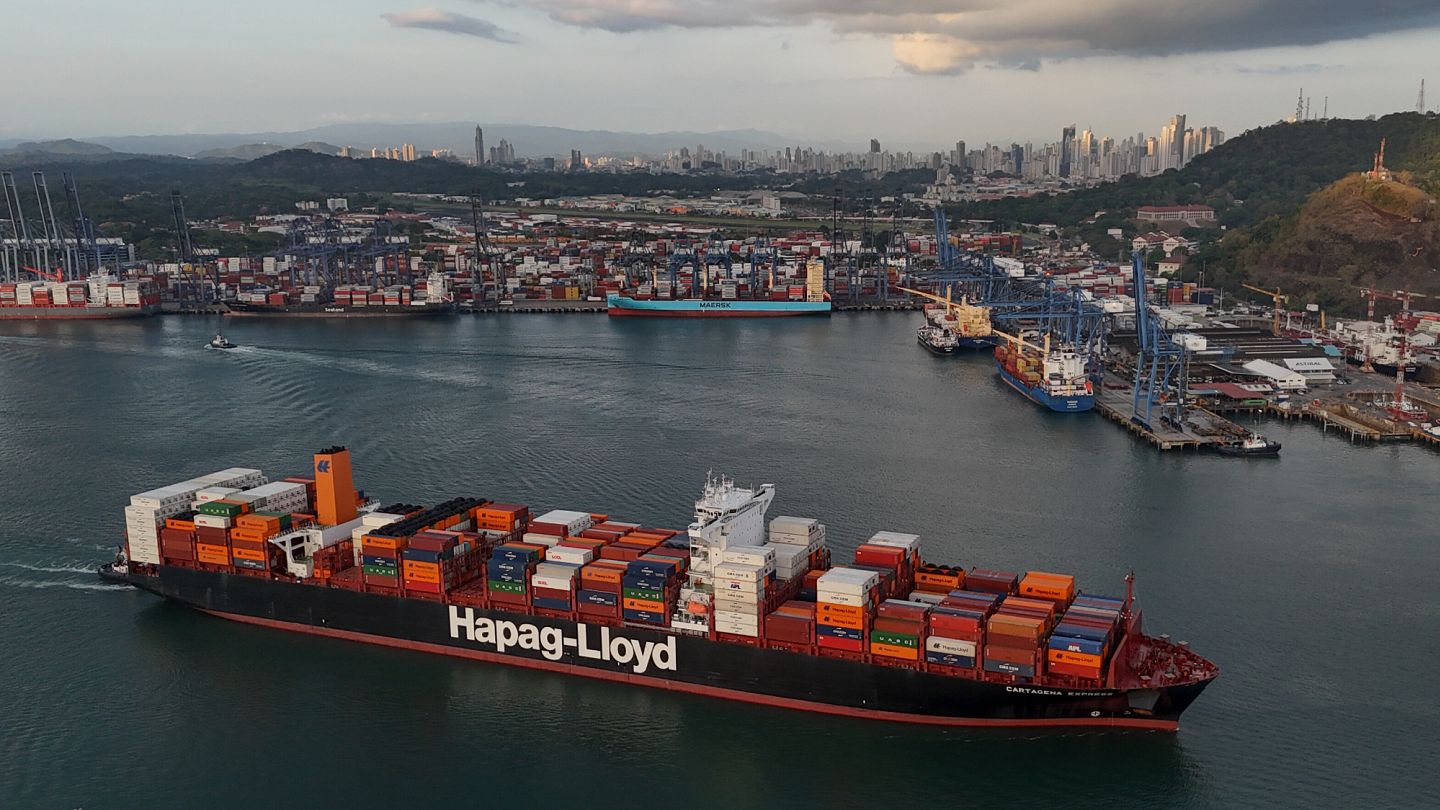The U.S. Secretary of Defense announced that China poses a threat to the Panama Canal.
Hegseth's visit took place amid tensions created by claims made by U.S. President Donald Trump that the U.S. pays too much to use the Panama Canal and that China has influence over the canal's operations.
U.S. Defense Secretary Pete Hegseth stated on Tuesday that China poses an ongoing threat to the Panama Canal, but that the U.S. and Panama will work together to keep the key waterway secure. Speaking at the ribbon cutting ceremony for a new dock funded by the U.S. at the Vasco Nuñez de Balboa Naval Base following his meeting with Panamanian President José Raúl Mulino, Hegseth said that the U.S. would not allow China or any other country to threaten the canal's operations. "To this end, we have done more in recent weeks to strengthen our defense and security cooperation than we have done in decades," he said. Hegseth implied that the control shares of the ports at both ends of the canal are controlled by a Hong Kong consortium. "China-based companies continue to control critical infrastructure in the canal region," he said. "This gives China an opportunity to conduct surveillance activities throughout Panama. This makes Panama and the United States less secure, less prosperous, and less sovereign. As President Donald Trump has stated, this situation is unacceptable."
The visit occurred amidst tensions due to claims made by U.S. President Donald Trump that the U.S. pays too much to use the Panama Canal and that China has influence over the canal's operations. Panama has denied these claims. Following a phone conversation between Hegseth and Mulino in February, the U.S. State Department announced on X that an agreement had been reached to not charge U.S. warships for passing through the canal. Mulino publicly denied that such an agreement had been reached. Trump went so far as to say that the U.S. should never have transferred the canal to Panama and perhaps should reclaim it. Concerns about China were triggered by a Hong Kong consortium that leased the ports at both ends of the canal for 25 years. The Panamanian government announced that the lease contract had been audited and concluded late Monday that there were irregularities. However, the Hong Kong consortium had announced that CK Hutchison would sell its control shares in the ports to a consortium that includes BlackRock Inc., and that upon completion of the sale, the ports would come under American control. During his visit, Secretary of State Marco Rubio told Mulino that Trump believes China's presence in the canal region could violate an agreement that led to the U.S. transferring the waterway to Panama in 1999. The agreement envisions that the American-made canal remains permanently neutral. However, Mulino rejected that China has any influence over the canal's operations.


